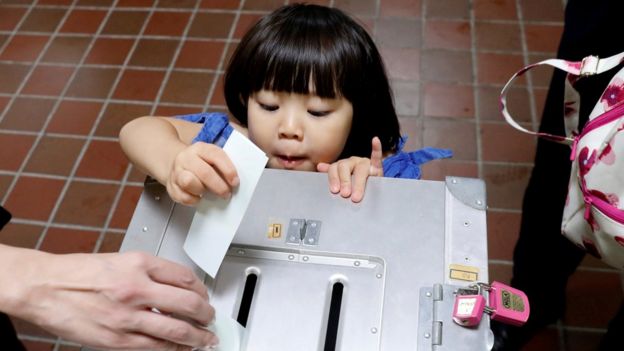
This article is more than
8 year oldMr Abe had said he called the election a year early in order to increase his mandate amid a number of "crises" facing the country.
Among them was the increasing threat from Pyongyang.
The initial exit polls suggested Mr Abe had done just that, retaining his two-thirds "super-majority".
This is vital to his ambition to revise Japan's post-war pacifist constitution - enacted by the country's American occupiers in 1947 - Article 9 of which calls for the complete renunciation of war.
Japan has worked around the rule by stating that its army exists for the purposes of defence, but Mr Abe has long made it clear that he wishes to revise the rule.
He said he would try to "gain support from as many people as possible" for the task.

Speaking after the exit polls, reported by the public broadcaster NHK to have given his Liberal Democratic Party-led (LDP) coalition 312 seats, Mr Abe said: "As I promised in the election, my imminent task is to firmly deal with North Korea.
"For that, strong diplomacy is required."
North Korea has already fired two missiles over Hokkaido, the northernmost island in Japan, in recent months.
A win in the election also raises Mr Abe's chances of securing a third three-year-term as leader of the LDP when the party votes next September.
That would give him the opportunity to become Japan's longest serving prime minister, having been elected in 2012.